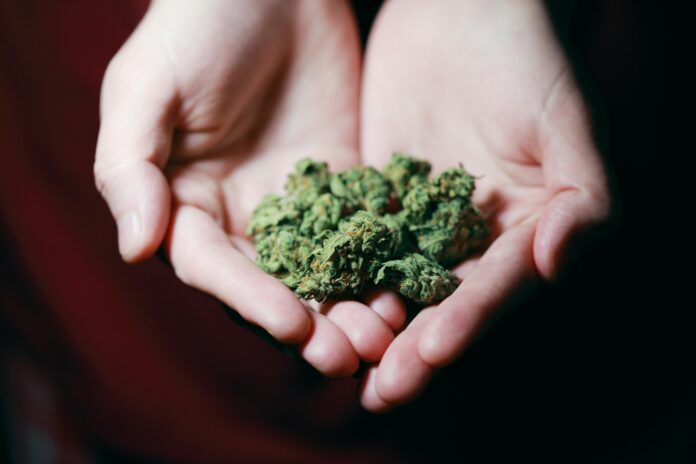Hemp. Ganja. Bud. Flower. 420.
Are you aware what the above words refer to? If you know, you know and if you don’t, grab a seat. We’re talking about cannabis today and what health benefits might be lurking within the makeup of this misunderstood weed.
What is cannabis? This plant is commonly known as marijuana, pot, or weed, along with the words at the top of this article. It is a plant that can easily grow as tall as 20 feet. It has a rigid stem with glandular hairs that secrete compounds that effects user. The leaves can be rolled into a joint or a blunt then smoked like a cigarette or put into a pipe and smoked. In addition, edibles made with cannabis compounds are also available not. Another method of indulging is vaping.
The two compounds within cannabis we will focus on today are THC and CBD. But first the legalities.
Though on a federal level marijuana is considered a Schedule 1 drug under the Controlled Substances Act, its use and the possession of small amounts for personal use is now legal in 24 out of 50 states. Use of this substance for medical reasons is legal in 38 out of 50 American states, and in four out of five American territories, including the District of Columbia.
What is the difference between THC and CBD?
THC
When used, THC will activate neurons in the brain responsible for feelings of pleasure, your memory, and coordination. It also produces the feeling of euphoria and relaxation, or, that “high” feeling.
How Long Does THC Stay in Your Body?
The length of time THC can be found in your body depends on how often you indulge and the way in which you do because it builds within your body over time. For example, the THC in an edible will stay in your body longer than vaping or smoking would.
Below are various ways tests can determine the presence of THC in your body.
- With occasional users of THC, it can be found in saliva 24 hours after last use and one to three days after last use in a urine test. A blood test will detect THC one to two days after last use.
- If you are a frequent user, THC will be found in saliva 30 hours after last use and 7 to 21 days in a urine test. Seven days after your last use, a blood test will present a positive result.
- In habitual users, THC will appear in saliva 30 hours after last use and 30 days after last used in a urine test. A positive result will show the presence of THC seven days after last use in a blood test.
A hair sample in all three situations will show that THC is present even 90 days after last use.
Bonus: It is a myth that THC can be flushed out of your system by drinking lots of water or sweating it out. The only way to eliminate this from your body is to stop indulging and to give it time to eliminate itself on its own.
Health Benefits of THC
- THC has been shown to relieve chronic pain such as from arthritis,
cancer, another illness or from injuries.
- Patients undergoing chemotherapy often suffer from nausea and vomiting. The use of a combination of oral THC and other drugs prescribed by a doctor, have been found to be helpful to these patients.
- Paraplegics and those who suffer from multiple sclerosis have also been able to reduce muscle spasms with the use of THC.
- In addition to the above, THC will help the user fall asleep faster and stay asleep longer.
CBD or Cannabidiol
This chemical in marijuana that does not contain THC. It is sold in various forms including oil, sprays, gummies, capsules, soft gels and can be vaped. CBD will not get you high, but you will feel mellow, experience less pain and feel more comfortable overall.
Like THC, CBD is available in many states but its distribution and use must comply with state and federal laws.
The Three Forms of CBD
- Full Spectrum CBD: Contains less than 0.3% THC and includes every part of the cannabis plant.
- Broad Spectrum CBD: Does not contain THC and includes most of the cannabis plant.
- Isolate CBD: This form contains just CBD ad no added cannabinoids.
How Long Does CBD Stay in Your Body?
Although CBD will not show up on a drug test, THC contamination sometimes occurs during the manufacturing process. However, if sprayed, this substance will remain in the body from ten hours to two days. If orally consumed on a frequent basis, CBD will show up for ten to 25 days after consumption and about a week after smoking.
Health Benefits of CBD
- Counteracts anxiety and depression.
- Scientific tests have supported a finding that two rare forms of epilepsy, Lennox-Gastaut Syndrome and Dravet Syndrome, can be successfully treated with CBD oil.
- Alleviates PTSD symptoms in conjunction with therapy.
- Clinical trials have shown that the opioid cravings of an addict can be reduced and managed with CBD.
- Similar to PTSD patients, ALS (Amyotrophic Lateral Sclerosis) patients can benefit from a combination of THC and CBD. In both cases, these treatments have shown a decrease in anxiety.
- Sativex, a spray that is absorbed in the lining of the mouth, was approved in Canada in 2005 for the treatment of neuropathic pain. In 2007, it was approved for the treatment of arthritis and cancer pain that had not responded to medications in the past.
Studies have shown that topically applied CBD is effective in treating intense, sharp pain in patients with symptomatic peripheral neuropathy which is what happens when brain, nerve and spinal cord nerve damage are present.
- CBD reduces high glucose levels in the body, which helps to avoid the development of diabetes, diabetic complications, and plaque buildup.
- CBD has antioxidant and anti-inflammatory properties which can provide protection against various neurological diseases.
Who would have thought that the devil’s lettuce could be so positively helpful in dealing with our health woes!


